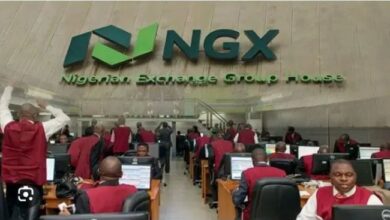Internet access key to Africa’s investment in digital technologies – UNECA
 The United Nations Economic Commission for Africa (UNECA) has said internet access is pivotal to Africa’s economic and social transformation, making it vital for governments to invest in digital technologies.
The United Nations Economic Commission for Africa (UNECA) has said internet access is pivotal to Africa’s economic and social transformation, making it vital for governments to invest in digital technologies.
The UNECA Acting Executive Secretary, Mr Antonio Pedro, said this at a High-Level Leaders Session at the ongoing 17th Internet Governance Forum (IGF) in Addis Ababa, Ethiopia.
The forum is being held from Nov. 28 to Dec. 2.
The session was on “Universal, Affordable and Meaningful Connectivity”.
He said “Digitalisation is key to achieving the Sustainable Development Goals (SDGs) and Agenda 2063 as well as achievements that require the contribution of all stakeholders.”
Speaking on the importance of partnerships and collaboration in boosting digital connectivity in Africa, Pedro said Africa is on the path of economic transformation with the operationalisation of the Africa Continental Free Trade Area (AfCFTA).
He also said the Economic Commission for Africa (ECA) is using its functions to explain the conversation about the internet and its role in society.
“We have also identified opportunities for all the stakeholders to participate, for example, we are helping our member states to formulate national AfCFTA strategies.
“The AfCFTA is deemed as the African Marshall Plan and it will create a market for 1.5 billion people with no tariffs and other barriers.
“It will enable the emergence of small and medium enterprises and regional value chains which require digitalisation as a means to enable trade.”
The UN official said the African Union Commissions’ Digital Transformation Strategy is an excellent framework for prioritising digital infrastructure and accessibility.
He said these would be a prerequisite to achieving digital transformation and prosperity in line with Agenda 2063.
Furthermore, Pedro said the ECA is supporting the establishment of the first Artificial Intelligence (AI) research center in Congo Brazzaville.
He also said it would be supported in the African Science, Technology, Engineering, the Arts and Mathematics centre in Rwanda, and the Cyber security centre in Togo.
Also speaking, Mr Paul Scully, Minister for Tech and the Digital Economy, United Kingdom, spoke on the importance of multi-stakeholder models to produce effective collaborative solutions to problems like digital connectivity.
He said: “To achieve our ambition, all stakeholders need to work together and in this regard we should not view actors as having narrowly assigned roles and responsibilities.
“We do not see the government, the private sector and civil society working in silos but rather cooperating to deliver on joint ambitions.”
Scully said the British government had established the international TechHub network through the digital access programme which catalysed effective, affordable and secure digital access for populations in Kenya, Nigeria and South Africa.
However, Ms Paula Ingabire, Minister of Information and Communication Technology, Rwanda, said the right legal and regulatory reforms necessary to ensure meaningful connectivity and accessibility, should be in place.
“We need to look at universal access policies and not just access but also ensuring that affordability is achieved as we drive broadband connectivity for all and ensure that no one is left behind,” Ingabire said.
Furthermore, Kojo Boakye, Director of Public Policy Africa and the Middle East, Meta, said creating meaningful connectivity is about governments creating the policy regulatory framework for the private sector to invest in.
Boakye also said the civil society organisations should be watchdogs and inform the regions where investments should go.
“Government should certainly set the agenda and policy regulatory environment conducive to increasing access and affordability.
“When done well you have great projects like 2Africa, Meta project connecting 33 countries in Africa and Middle East and which will bring more capacity than all cables at this point in time.”
Also, Mr Junhua Li, United Nations Under-Secretary-General for Economic and Social Affairs, said the IGF could accelerate universal connectivity by creating new partnerships and generating new ideas.
“Advancement in technologies must ultimately serve wider roles of sustainable development and leave no one behind,” said Li.
Meanwhile, participants said connectivity is expensive in terms of infrastructure, but also important.
Ms Lise Fuhr, Director-General, European Telecommunications Network Operators’ Association, said: “We need the cooperation of governments, pension funds, and private sector in the deployment of connectivity and we need to make sure the funding and infrastructure roll out exactly to those places and communities which need it.”
Fuhr also spoke on the need for investors’ “clarity and certainty that they are making a good investment”.
“Connectivity needs to be meaningful and affordable, but we cannot risk undue government interference.
“We cannot risk network shutdown and we cannot have top-down mandating of protocols.
“We reject any attempt to fragment the internet with top-down protocols. It is bad for democracy; it is bad for investment and also bad for achieving universal connectivity.”
However, Nii Narku Quaynor, Chairman, Ghana Dot Com, said providing affordable and meaningful connectivity across diverse population groups had challenges, like unstable connectivity, lack of devices, connection applications and education.
“Technology security is similar to food security.”
The theme of the 17th annual IGF is “Resilient Internet for a Shared Sustainable and Common Future”.
The forum is being hosted in a hybrid format and the overall objective is to make participation meaningful and inclusive for all participants.









